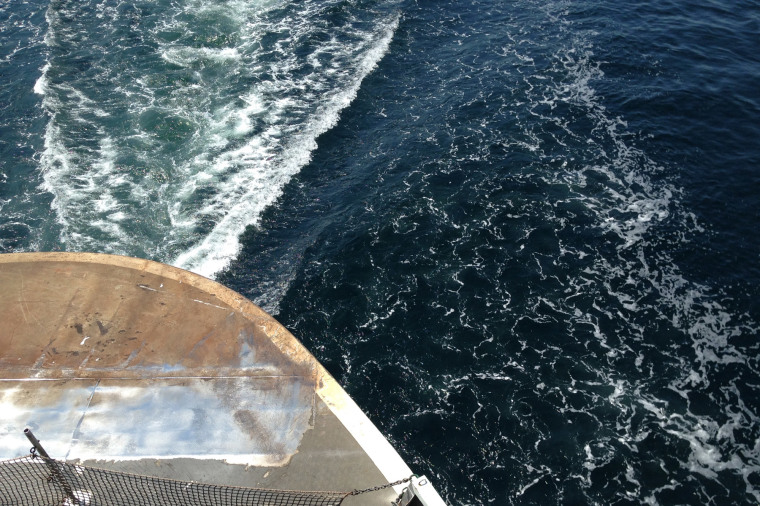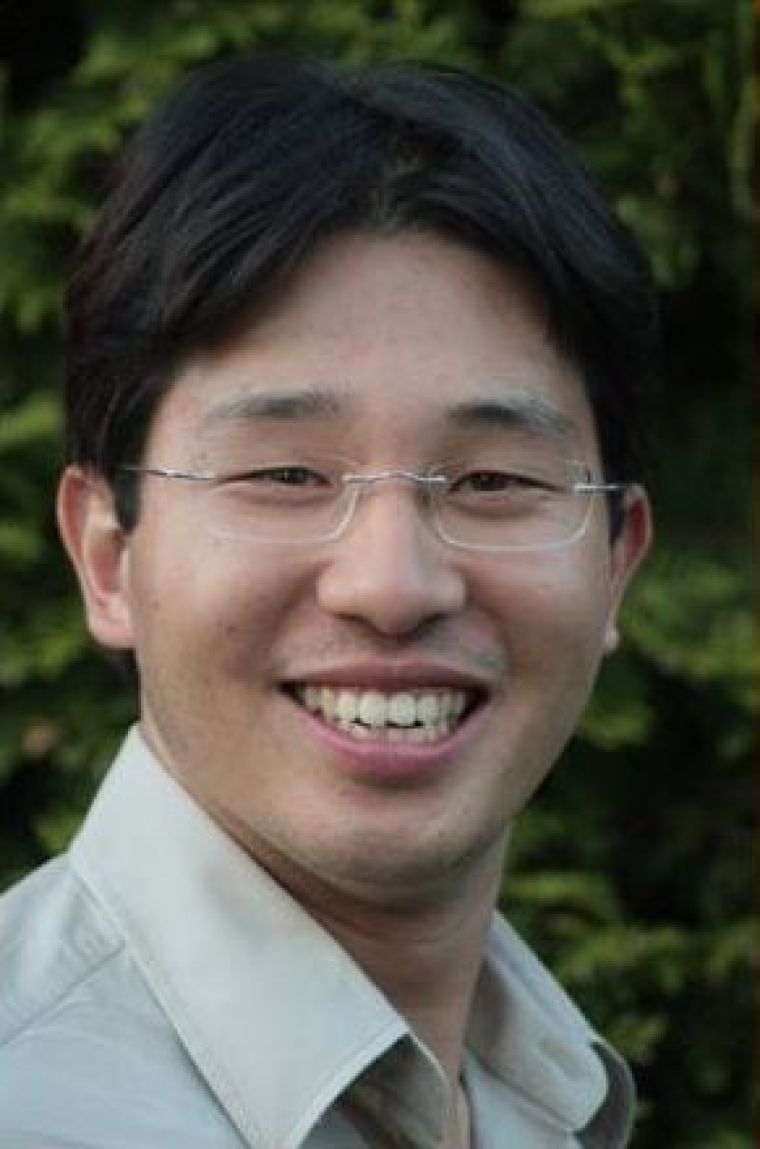
Logos Hope entered the floating dry dock shipyard in Subic Bay, Philippines for her annual maintenance work. Little did I know that the ship life I once knew would be radically changed. This in turn posed some challenges that hit me hard on an emotional level. I felt like the dry dock phase transformed the ship into a pressure cooker in which I was caught off guard. Is this just my own imagination?
The ship in dry dock means raising the entire 12,000 ton vessel out of the water, creating a facinating view of the huge hull below the waterline.
Then what is it like inside the ship? As ventiliation and water is cut off for work on the front of the ship, many crewmembers had to pack and move cabins. I packed all my belongings and moved out of my cabin for other project workers coming on board. Air conditioning is limited, temperature is hot and work hours are long. The weather in Subic has been hot and humid. Inside the ship, it only takes a short walk to find myself all sweaty. It is important to drink lots of water in order to avoid dehydration.
The ship's school has been temporarily used as accommodation. At night, I sleep in a small classroom with four other guys. There is a small fan which we leave on all night for much needed air circulation. Personal space is minimal but this helps people to get to know one another better.
There are over 200 crewmembers and volunteer project workers on board, faithfully plodding along with the many tasks—re-fitting pipes, cleaning tanks and, painting to name a few. The work can be physically demanding.
During the dry dock, Logos Hope has been sending out about 100 crew members to various parts of the Philippines to share God's love onshore. Each outreach team typically consists of 5–6 crew members and partners with a local church to provide knowledge, help and hope in many practical ways.
In April, I was part of the team which visited Dasmariñas City, Cavite. Our team painted the school we stayed in and a pedestrian crossing on a busy road. We also helped run a vacation Bible school, a youth camp and tested people's eyesight for reading glasses. As we shared our faith in the local community, we saw many people accept Christ. I was so privileged to be part of this amazing short-term mission onshore.
When I came back to the ship in May, I had to face new realities. A re-entry after a mission trip can sometimes be tough, but this transition to dry dock was something else altogether. It was a two-way change for both me and the ship. I had been deeply impacted by the onshore mission, and during that time, my home had also been changed to a new community in the shipyard. To my surprise, the life back home was tougher than life on the mission field! Straight after the onshore mission, working 10 hour days on the ship in hot conditions with limited personal space and little time to reflect quickly made me frustrated and discouraged.
In 1 Kings 18–19, we find Elijah, the great man of God, experiencing the depths of fatigue and discouragement only days after his two great spiritual victories: the defeat of the prophets of Baal and the answered prayer for rain. After achieving a tremendous victory over evil, Elijah lost his spiritual perspective. He became so discouraged to the point that he had forsaken God's purpose for his life (1 Kings chapter 19, verse 4). But God took care of him in practical ways with food, drink and rest before finally giving him a renewed purpose for his life (1 Kings chapter 19, verses 5–18).
Like Elijah, often discouragement sets in after great spiritual experiences, especially those requiring physical effort or producing emotional excitement. When the blues hit after such experiences, we need to remember that God's purpose for our life is not over yet. Like the gentle whisper for Elijah, God's guidance may come when we least expect it. The question is: are we listening for God?
As I reflect on God's cure for Elijah's discouragement, I was challenged to search for greater purpose in small things I do. After seeking the Lord in prayer, I was able to turn off the negative voices that made me feel discouraged. It is true that the ship in dry dock can be a pressure cooker. But it can also be an intensive training phase for developing endurance. And endurance produces character, and character produces hope. (Romans chapter 5, verse 4).
There is a saying that we don't see things the way they are. Rather, we see things the way we are. With a new perspective on my challenges, I can now thank God for the unique experience that can help me to grow and deepen my trust in Him. How will you respond to similar challenges in your life? May the joy of the Lord be your strength today.
Logos Hope is looking for more project workers, plumbers, pipe fitters and welders to join during the dry dock in Subic Bay. If you are interested, please visit: www.omships.org/to/projectworker for more information.
Daniel Jang's previous articles may be viewed at www.pressserviceinternational.org/daniel-jang.html

Daniel Jang is a senior advisor with Ministry of Health New Zealand. He is an experienced writer, speaker and mentor to Press Service International (PSI) community. Daniel holds an MA in Applied Biblical Studies from Moody Bible Institute and GradDip in Theology from Laidlaw College.
Daniel Jang's previous articles may be viewed at https://www.pressserviceinternational.org/daniel-jang.html